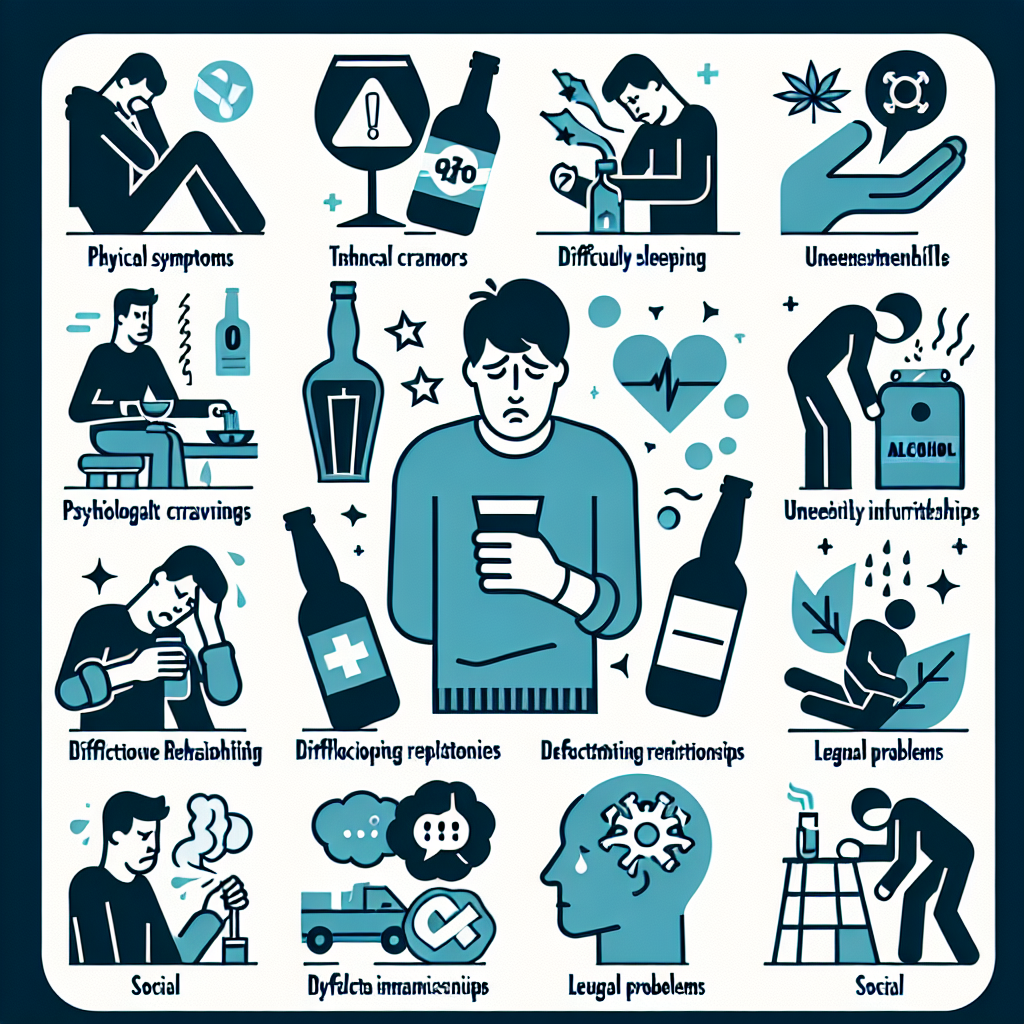-
Table of Contents

“Thriving Together: Mastering Work and Eating Disorder Recovery”
Introduction
Balancing work and eating disorder recovery can be a challenging endeavor, requiring a delicate equilibrium between professional responsibilities and personal health. The demands of a career can often exacerbate the stress and anxiety that contribute to disordered eating behaviors, making it essential to develop strategies that support both recovery and job performance. This introduction explores practical tips for successfully managing work while prioritizing recovery, emphasizing the importance of self-care, setting boundaries, and seeking support. By integrating these approaches, individuals can create a sustainable path to healing without compromising their professional aspirations.
Strategies For Managing Work Stress While Recovering From An Eating Disorder
Balancing work and eating disorder recovery can be a challenging endeavor, but with the right strategies, it is possible to manage work stress while staying committed to your recovery journey. One of the first steps in achieving this balance is to establish a supportive work environment. Communicating with your employer or HR department about your recovery needs can be incredibly beneficial. While it may feel daunting to disclose such personal information, many workplaces are becoming increasingly aware of mental health issues and are willing to make accommodations. This could include flexible working hours, the option to work from home, or even access to mental health resources.
In addition to creating a supportive work environment, it is crucial to set realistic goals and boundaries. Overcommitting to work tasks can exacerbate stress and trigger unhealthy coping mechanisms. Therefore, it is essential to prioritize your workload and delegate tasks when possible. Learning to say no is a powerful tool in maintaining your mental health. By setting clear boundaries, you can ensure that you have enough time and energy to focus on your recovery.
Another effective strategy is to incorporate regular breaks into your workday. Taking short, frequent breaks can help reduce stress and prevent burnout. Use these breaks to engage in activities that promote relaxation and well-being, such as deep breathing exercises, stretching, or a brief walk outside. These moments of respite can help you reset and return to your tasks with a clearer mind and renewed energy.
Moreover, maintaining a structured routine can provide a sense of stability and control, which is particularly important during recovery. Plan your meals and snacks ahead of time to ensure that you are nourishing your body adequately throughout the day. Keeping healthy snacks at your desk can prevent you from skipping meals or resorting to unhealthy options. Additionally, staying hydrated is often overlooked but is vital for both physical and mental health. Keep a water bottle at your desk and set reminders to drink water regularly.
It is also beneficial to develop a strong support network both inside and outside of work. Having colleagues who understand your situation can provide a sense of camaraderie and reduce feelings of isolation. Outside of work, consider joining a support group or seeking therapy to connect with others who are going through similar experiences. Sharing your struggles and successes with others can be incredibly empowering and provide valuable insights and encouragement.
Furthermore, practicing mindfulness and self-compassion can significantly impact your ability to manage work stress. Mindfulness techniques, such as meditation or journaling, can help you stay present and reduce anxiety. Self-compassion involves treating yourself with kindness and understanding, especially during challenging times. Recognize that recovery is a journey with ups and downs, and it is okay to have setbacks. What matters most is your commitment to moving forward and taking care of yourself.
Lastly, it is important to celebrate your progress, no matter how small it may seem. Acknowledge your achievements and give yourself credit for the hard work you are putting into both your career and your recovery. Positive reinforcement can boost your motivation and reinforce healthy behaviors.
In conclusion, balancing work and eating disorder recovery requires a multifaceted approach that includes creating a supportive work environment, setting realistic goals, taking regular breaks, maintaining a structured routine, developing a support network, practicing mindfulness and self-compassion, and celebrating your progress. By implementing these strategies, you can manage work stress effectively while staying committed to your recovery journey. Remember, you are not alone, and with perseverance and support, you can achieve a harmonious balance between your professional life and your well-being.
Creating A Supportive Work Environment For Eating Disorder Recovery
Balancing work and eating disorder recovery can be a challenging endeavor, but creating a supportive work environment is crucial for success. The workplace can often be a source of stress, which may exacerbate eating disorder symptoms. However, with the right strategies and support systems in place, it is possible to navigate this journey effectively. One of the first steps in creating a supportive work environment is open communication. It is essential to have a conversation with your employer or HR department about your recovery process. While this may feel daunting, being transparent about your needs can foster understanding and accommodations that can significantly ease your journey. For instance, flexible working hours or the ability to take breaks when necessary can make a substantial difference.
In addition to open communication, building a network of supportive colleagues can be incredibly beneficial. Having trusted coworkers who are aware of your situation can provide a sense of security and encouragement. They can offer a listening ear, help you stay accountable, and even join you in healthy eating habits. This camaraderie can transform the workplace into a more nurturing environment, making it easier to focus on both your job and your recovery.
Moreover, it is important to establish boundaries to protect your mental and physical health. This might mean setting limits on your workload or learning to say no to additional responsibilities that could overwhelm you. Prioritizing self-care is not a sign of weakness but a necessary step in maintaining your well-being. By setting these boundaries, you can create a more balanced and manageable work-life dynamic.
Another key aspect is integrating regular self-care practices into your daily routine. This could include mindfulness exercises, regular physical activity, or simply taking time to relax and unwind. These practices can help reduce stress and improve your overall mental health, making it easier to cope with the demands of work and recovery. Additionally, having a structured meal plan can ensure that you are nourishing your body adequately throughout the day, which is vital for recovery.
Furthermore, seeking professional support is crucial. Regular sessions with a therapist or counselor who specializes in eating disorders can provide you with the tools and strategies needed to navigate both your recovery and work life. They can offer personalized advice and support, helping you to develop coping mechanisms that are tailored to your specific situation. This professional guidance can be a cornerstone of your recovery process.
It is also beneficial to educate yourself and others about eating disorders. Understanding the complexities of these conditions can foster empathy and reduce stigma in the workplace. Sharing educational resources with your colleagues can create a more informed and supportive environment, which can be incredibly empowering.
Lastly, celebrating small victories is essential. Recovery is a journey with ups and downs, and acknowledging your progress, no matter how small, can boost your motivation and self-esteem. Whether it’s successfully managing a stressful workday or sticking to your meal plan, these achievements are significant milestones on your path to recovery.
In conclusion, balancing work and eating disorder recovery requires a multifaceted approach that includes open communication, supportive relationships, self-care, professional guidance, education, and celebrating progress. By creating a supportive work environment, you can navigate this challenging journey with greater ease and success. Remember, your well-being is paramount, and with the right support, you can achieve a harmonious balance between your professional responsibilities and your recovery.
Q&A
1. **Question:** How can someone manage their work schedule while attending therapy sessions for eating disorder recovery?
**Answer:** To manage work and therapy, communicate with your employer about your needs, schedule therapy sessions during lunch breaks or after work hours, and consider flexible work arrangements or remote work options if possible.
2. **Question:** What are some strategies to ensure proper nutrition during a busy workday for someone recovering from an eating disorder?
**Answer:** Plan and prepare balanced meals and snacks in advance, set reminders to eat regularly, keep nutritious snacks at your desk, and prioritize hydration throughout the day.
Conclusion
Balancing work and eating disorder recovery requires a strategic approach that prioritizes self-care, effective time management, and a supportive work environment. Key tips for success include setting realistic goals, establishing a structured routine, seeking professional help, and communicating openly with employers about necessary accommodations. Additionally, incorporating regular breaks, practicing mindfulness, and fostering a strong support network can significantly enhance the recovery process while maintaining professional responsibilities. Ultimately, achieving a balance between work and recovery is possible through deliberate planning, self-compassion, and leveraging available resources.



